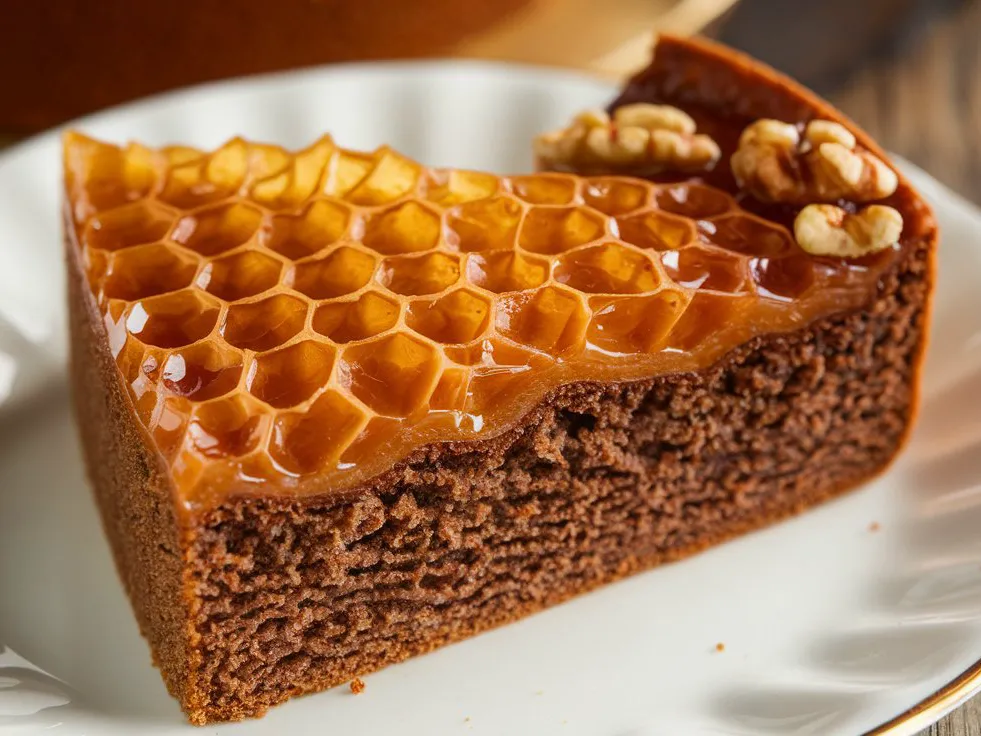Honey cake is a beloved dessert with a rich history, celebrated for its sweet flavor and moist texture. However, beyond its delightful taste, many wonder about its health benefits. This comprehensive article explores the nutritional aspects of honey cake, its potential health benefits and drawbacks, and how it fits into a balanced diet. By examining ingredients, dietary considerations, and health implications, we aim to provide a well-rounded understanding of honey cake’s impact on health.

1. Understanding Honey Cake
Honey cake is a traditional dessert made with honey as the primary sweetener, giving it a distinct sweetness and moisture. The basic recipe typically includes flour, sugar, eggs, baking powder or soda, spices, and fats like butter or oil. Variations may include additional ingredients such as nuts, fruits, and spices, contributing to the cake’s flavor and texture.
2. Nutritional Breakdown of Honey Cake
To evaluate honey cake’s healthiness, it’s essential to understand its nutritional profile. Here’s a breakdown of the common ingredients and their nutritional contributions:
Honey
Nutritional Profile:
-
Calories: Approximately 64 calories per tablespoon.
-
Carbohydrates: High in carbohydrates, primarily sugars.
-
Vitamins and Minerals: Contains small amounts of vitamins B and C, calcium, and iron.
-
Antioxidants: Honey has antioxidant properties, which can help combat oxidative stress.
Health Benefits:
-
Natural Sweetener: As a natural sweetener, honey can be a better alternative to refined sugar. Consequently, it may have a less dramatic effect on blood sugar levels.
-
Antimicrobial Properties: Additionally, honey has been traditionally used for its antimicrobial properties.
-
Digestive Health: Furthermore, some studies suggest honey may aid in digestion and soothe the digestive tract.
Health Drawbacks:
-
High Sugar Content: Despite its benefits, honey is high in sugar, which can contribute to weight gain and dental problems if consumed in excess.
Flour
Nutritional Profile:
-
Calories: About 100 calories per 1/4 cup.
-
Carbohydrates: Mainly carbohydrates, with some protein and minimal fat.
-
Vitamins and Minerals: Provides small amounts of iron, B vitamins, and folic acid.
Health Benefits:
-
Energy Source: Flour is a source of energy due to its carbohydrate content. Therefore, it provides a quick energy boost.
Health Drawbacks:
-
Refined Flour: On the other hand, refined flour used in many honey cake recipes can be low in fiber and nutrients compared to whole grain options.
Sugar
Nutritional Profile:
-
Calories: About 16 calories per teaspoon.
-
Carbohydrates: High in simple sugars with no additional nutrients.
Health Drawbacks:
-
Added Sugar: Excessive sugar consumption is linked to various health issues, including obesity and type 2 diabetes.
Butter or Oil
Nutritional Profile:
-
Butter: Approximately 102 calories per tablespoon, high in saturated fats.
-
Oil: Approximately 120 calories per tablespoon, depending on the type (vegetable, olive, etc.).
Health Benefits:
-
Flavor and Moisture: Provides flavor and moisture to the cake. As a result, it enhances the overall taste and texture.
Health Drawbacks:
-
Saturated Fats: Butter, in particular, is high in saturated fats, which can impact heart health.
Eggs
Nutritional Profile:
-
Calories: About 70 calories per large egg.
-
Protein: High in protein and essential amino acids.
-
Vitamins and Minerals: Rich in vitamins A, D, and B12, and minerals like iron and zinc.
Health Benefits:
-
Protein Source: Provides high-quality protein and essential nutrients. Thus, it supports overall health.
Health Drawbacks:
-
Cholesterol: High in cholesterol, which can be a concern for individuals with specific health conditions.

